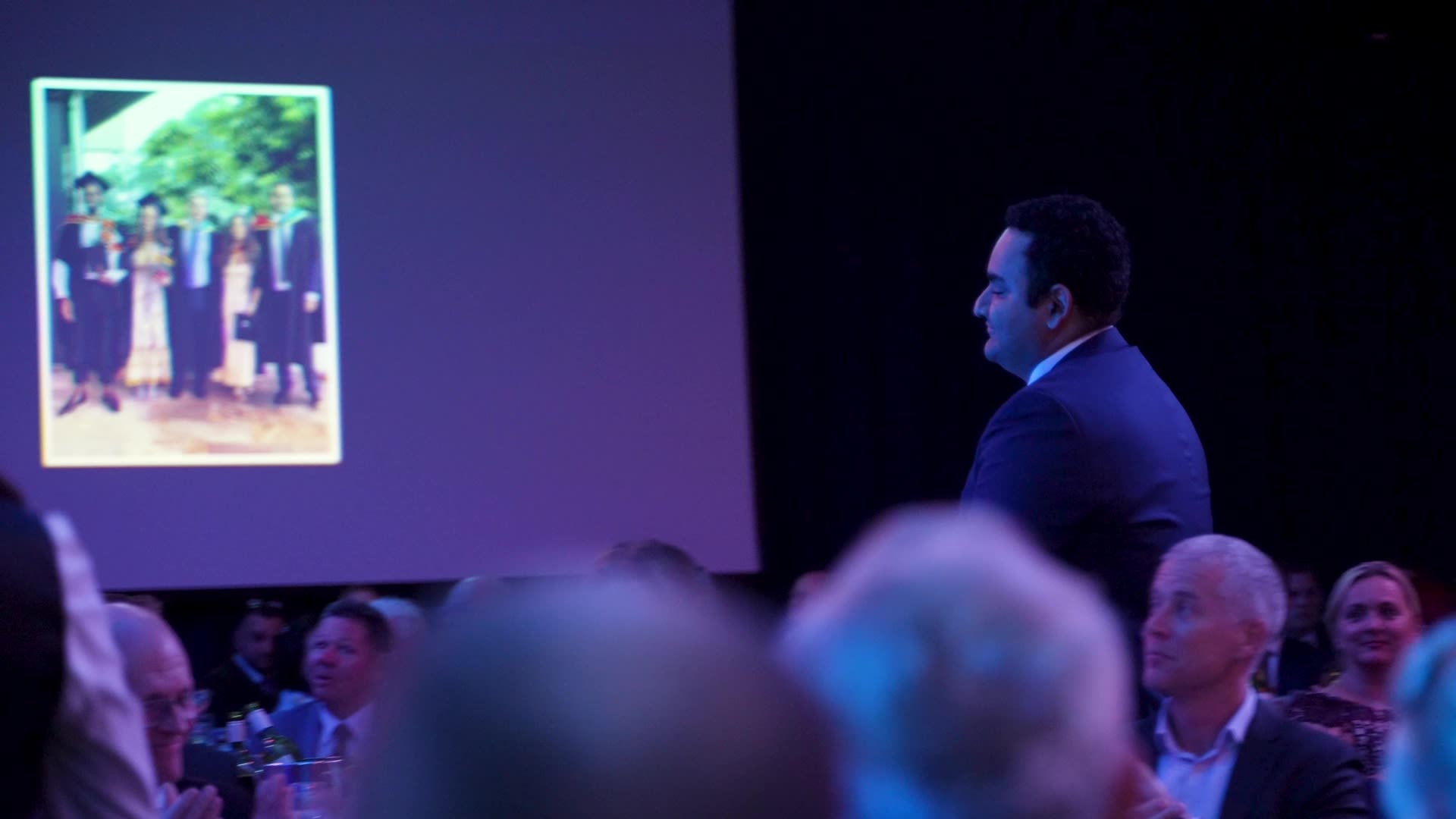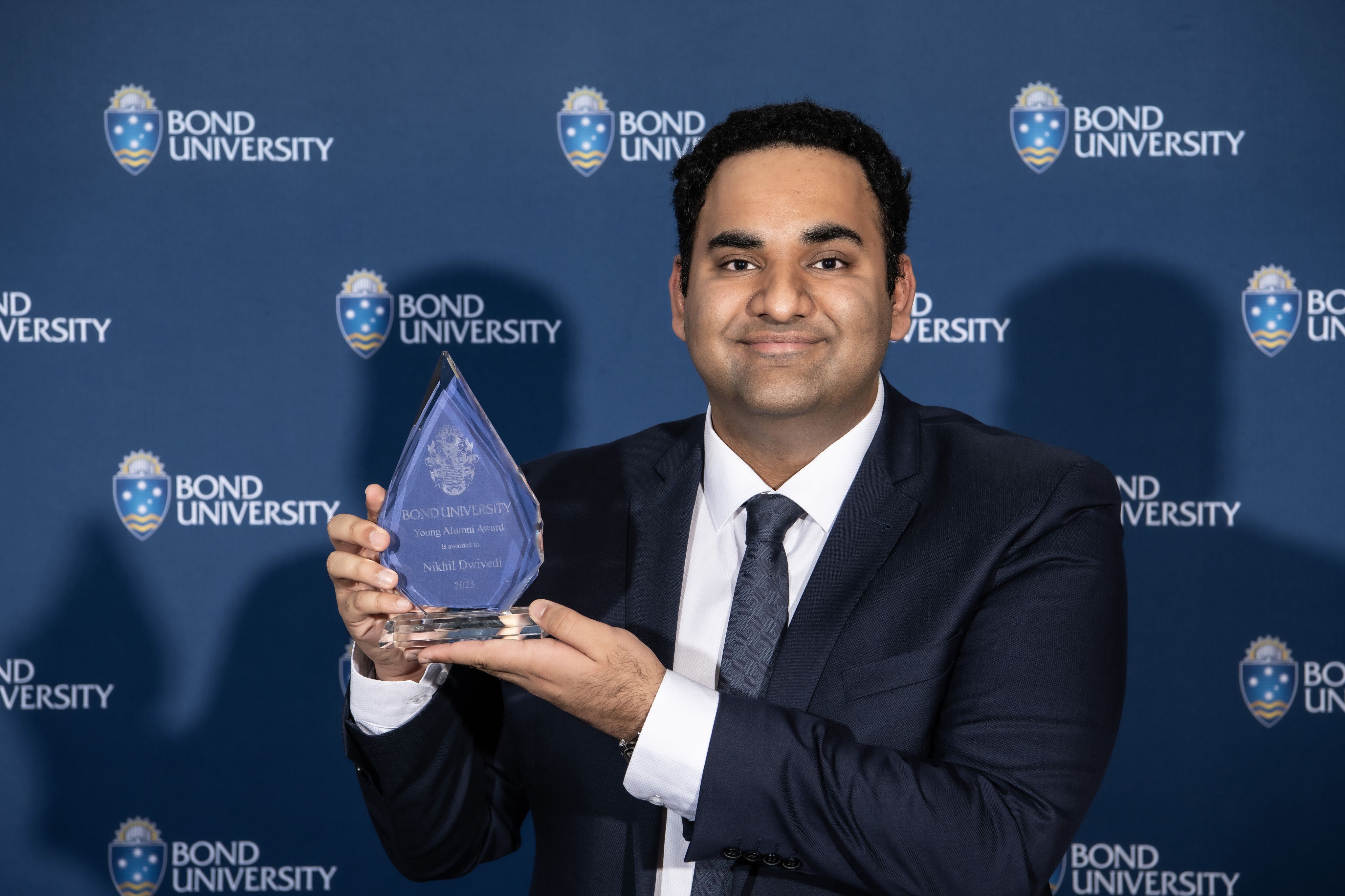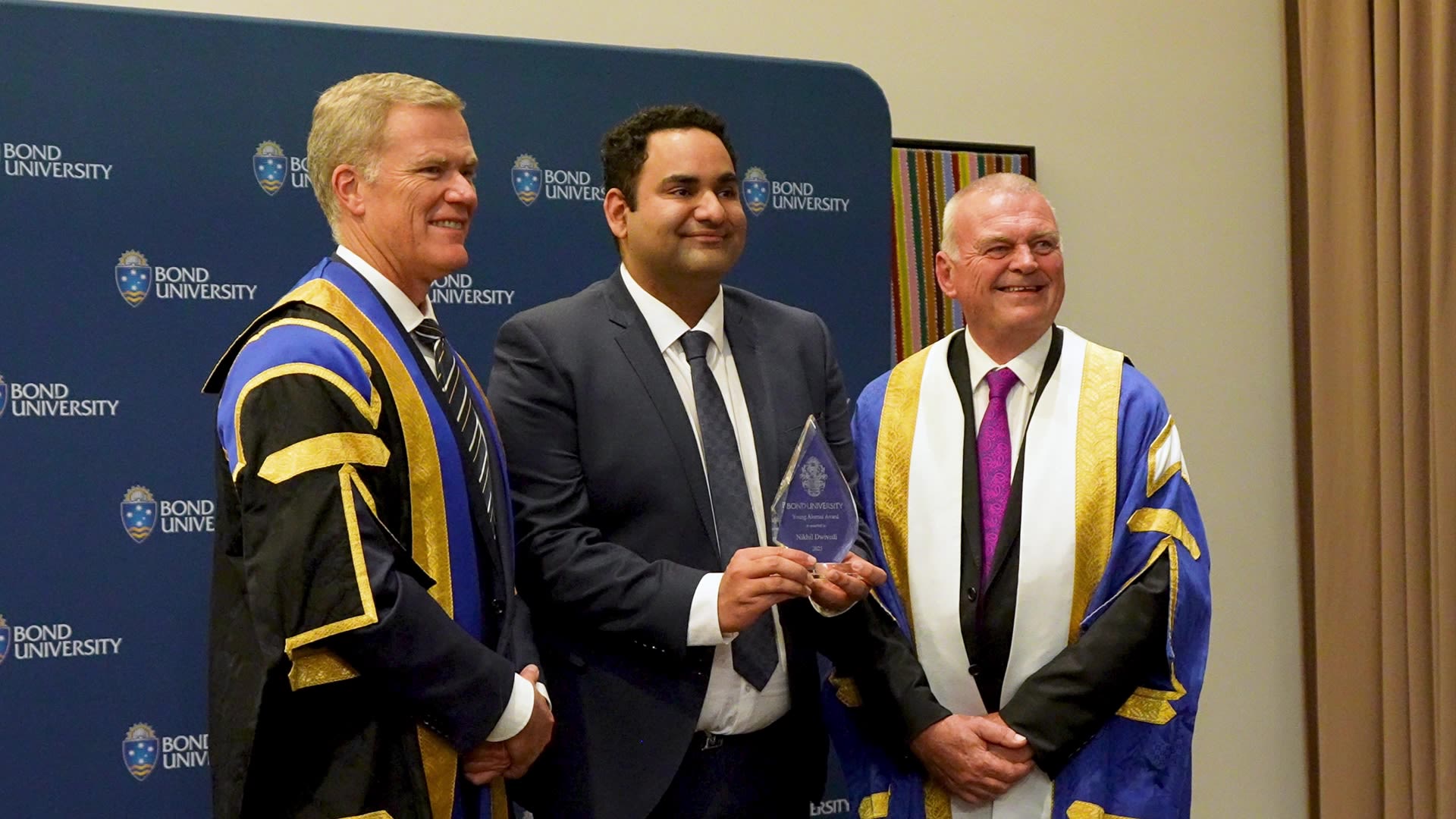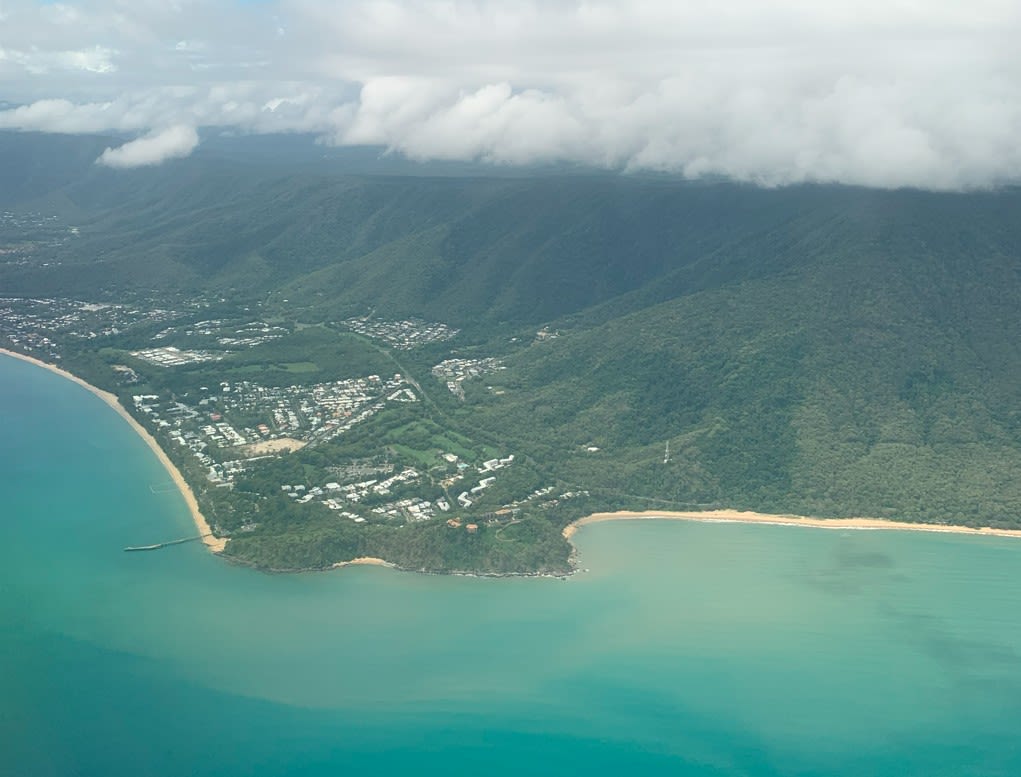

Bond alumnus Nikhil Dwivedi (Class of 2018) is a doctor and lawyer dedicating to enhancing healthcare. He was named Bond University’s 2025 Young Alumni Award winner.
When your father and both siblings are cardiologists, choosing to study law is bound to turn heads at the dinner table. But for Nikhil Dwivedi, it was a carefully considered decision – one made easier by his acceptance into one of the world’s top universities, Cambridge.
He still wanted to honour a family commitment to medicine, but thought a legal perspective could amplify his ability to help others.
“When I finished high school I always knew I wanted to do something in healthcare,” he says.
“My dad's a doctor. My siblings are both doctors as well. So it’s something that was kind of in my blood.
“I had the privilege of seeing the profound impact that you can have on people's lives as a doctor.
“I was equally lucky that I got to see some of the barriers to healthcare too, from my family working in that space, and the systemic challenges for both doctors but also for patients and people in the community.”
Step one in Nikhil’s carefully crafted plan was Law at Cambridge. Step two was the Medical Program at Bond University.
“Our healthcare system is so regulated and I think it's really important for us as clinicians to have an understanding of the system that we work in but also be able to advocate for ourselves and more importantly our patients.” he says.
“So with that in mind, I had the great privilege of going over to the UK and doing law, and then was very lucky to be given a chance to study medicine at Bond.
“My journey was about marrying up both of those interests.”
His choice of Bond to undertake his medical studies was also a very deliberate decision. The small classes, close-knit community and innovative learning methods echoed his experience at Cambridge. Nikhil says his teachers and mentors at Bond, through their encouragement and support, also shaped his passion for advocacy.
“I got a wonderful base of clinical knowledge at Bond ... but it’s also really supportive of the student voice and advocacy, and I think that’s something really special to Bond,” he said.
His time as Vice President and Academic Director of the Medical Students’ Society threw plenty of challenges, including navigating the COVID-19 pandemic and its impact on student placements and assessments.
“The fact the Faculty were even willing to listen to us as students is again something really special about Bond, and not only just listen, but take our suggestions on board.
“When I finished medical school I knew I wanted to continue doing that kind of thing as a junior doctor, so I have continued on through the Australian Medical Association of Queensland’s Council of Doctors in Training, and this year have the privilege of serving as the Chair of the Junior Medical Officers Forum Queensland.”

“I had the privilege of seeing the profound impact that you can have on people's lives as a doctor.”
Despite being his family’s fourth medico, Nikhil is something of an outlier. He’s currently a GP registrar and his clinical interest is in dermatology and First Nations Health, while his father and two siblings are cardiologists.
He's also passionate about delivering healthcare in rural and remote Australia after seeing the challenges faced by patients in these regions through his training.
“In my final year at Bond I had the opportunity to undertake a placement at the Cairns Hospital’s Dermatology Department with Dr Ilsphi Browne and that was completely eye-opening,” he says
“I got to see patients who would have to travel maybe six or seven hours to see a dermatologist, so they've been on a waitlist for a couple of years and they used to just break down in their appointments.
“They would tell me they couldn’t go to a swimming pool because they were embarrassed about their skin condition, or that their child was being bullied because of their eczema and that their classmates avoided them because they thought it was contagious, and I just was like ‘how do I navigate this?’.
“Seeing how Dr Browne and her team took their time to help these patients and make such a significant impact on their everyday lives was nothing short of inspiring.”
It also sparked a deeper interest in the role skin plays not just in physical health, but in how people see themselves – and how they’re seen by others.
“Skin is different in the sense that you can see people's skin health pretty much immediately,” he says.
“For better or worse, skin is one of the first things that forms our initial impression of someone’s physical health.
“I think we sometimes forget what sort of intricate relationship [skin] has with someone's feeling of self-worth and confidence, and I think it's a privilege to be able to work in that area to help people.”
Not to mention the importance of dermatology given Australia is the skin cancer capital of the world, as he discovered during a stint at the Princess Alexandra Hospital’s melanoma clinic.
“The impact of melanoma on people is just profound and seeing all the research, advocacy and development of new treatments in that space is really exciting,” he says.
His work in the field continues, with Nikhil working at the Queensland Health Inala Indigenous Clinic under the mentorship of Associate Professor Erin McMeniman, where he has also learned the importance of culturally safe care in a primary care setting.
He and his colleagues are undertaking a study on First Nations’ patient experiences of receiving dermatology treatment at a tertiary hospital compared to a dedicated clinic like the one at Inala.
They are already discovering the difference it makes to patients who can often feel isolated and unrepresented in healthcare.
“This truly highlights the exceptional work of the entire team at the Inala clinic, and the dedicated efforts of dermatologists like A/Prof McMeniman in supporting the health and wellbeing of First Nations People.”

So, what is the next step in Nikhil’s grand plan?
A deeper dive into Indigenous health and thinking of ways to improve medical education, and in particular how medical students and junior doctors learn about dermatology.
“That’s something I’d be really curious to do some further research on,” he said.
“It’s a bit of a passion project of mine.”
Published on Wednesday, 4 June, 2025.
Original thinking direct to your inbox

Stories from Bond
